Events in Libya are a further reminder for Americans that we stand at a crossroads in our continuing evolution as the world’s sole full-service superpower. Unfortunately, we are increasingly seeking change without cost, and shirking from risk because we are tired of the responsibility. We don’t know who we are anymore, and our president is a big part of that problem. Instead of leading us, he explains to us. Barack Obama would have us believe that he is practicing strategic patience. But many experts and ordinary citizens alike have concluded that he is actually beset by strategic incoherence — in […]
Latest Archive
Free Newsletter
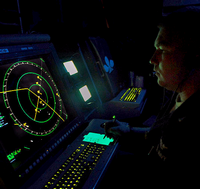
Unlike the successful uprisings in neighboring Tunisia and Egypt, characterized by largely unarmed protests and government crackdowns with tear gas and bullets, Libya is now in the midst of a full-bore violent civil war. Refusing to stand down, Col. Moammar Gadhafi has vowed “to fight until the last man and last woman to defend Libya from east to west, north to south.” While rebel forces have taken control of many town and cities, forces loyal to Gadhafi firmly control Tripoli, the country’s capital, and have started to contest the rebels’ control of strategic town and cities over the past week. […]
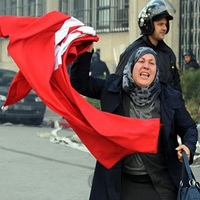
History demonstrates that revolutions often result in new or renewed forms of despotism. One reason for caution regarding the future of the Arab Uprising is that few Middle Eastern countries have political pasts not dominated by monarchy, theocracy or the military. So previous rebellions ultimately enhanced rather than mitigated socio-political intolerance. After all, Iran’s activist mullahs and al-Qaida’s founders were the products of rebellions against monarchist totalitarianism, too. It remains to be seen whether Egypt will become more democratic or return to military rule, or if the turbulence of the post-Mubarak period will open the door for the Muslim Brotherhood […]
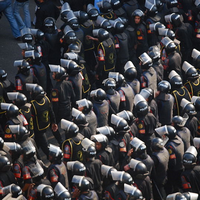
The wave of popular uprisings sweeping throughout the Middle East may give new life to what Evgeny Morozov, in his just-released book, “The Net Delusion,” called the “Google doctrine”: the “fervent conviction that given enough gadgets, connectivity and foreign funding, dictatorships are doomed.” Morozov initially dismissed that doctrine last August, when it appeared that the Iranian government had decisively broken that country’s Green Movement. But his assertion that new information technologies can just as easily be used in the service of strengthening authoritarian regimes as in toppling them is now being challenged by pundits citing the role of YouTube, Facebook […]
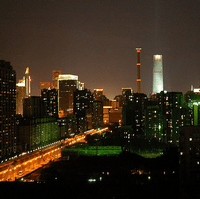
BEIJING — An emerging consensus holds that domestic price bubbles and the high degree of nonperforming loans littered throughout China’s financial system represent imminent threats to China’s continued economic rise. However, doomsday evocations of a Chinese crash ignore the fact that, if and when a day of reckoning arrives, China may be able to use its sovereign wealth to engineer a soft landing, thereby avoiding the more-apocalyptic scenarios often predicted. Indeed, a controlled bust may even yield benefits by moderating subsequent growth, and many analysts remain bullish on China’s long-term fundamentals. This market sentiment has been buoyed by recent evidence […]
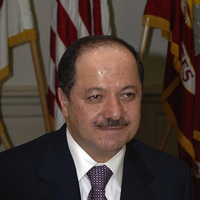
SULAIMANIYA, Iraq — Just a quick tour of the markets in any Kurdish city in northern Iraq is all that is needed to illustrate how far relations with Turkey, the once-hostile neighbor to the north, have come. Supermarket shelves are packed with Turkish goods, while new malls are flooded with Turkish brands. And many of the major business contracts, from airports to roads, go to Turkish companies. Turkey threatened Iraqi Kurdistan with an extensive military offensive just a couple of years ago, but the invasion that did occur was of a completely different nature. “I have to say that the […]
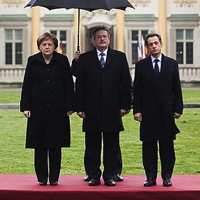
At a time of serious budgetary restrictions and painful austerity measures, Europe must reassess its political ambitions and ratchet up its efforts to reverse negative trends in its global influence. With this in mind, Warsaw has increasingly sought to revitalize close coordination between Poland, France and Germany in what is known as the Weimar Triangle. That initiative has taken on greater urgency in anticipation of Poland assuming the rotating European Union presidency in July 2011. However, the most recent Weimar Triangle Summit, held in Poland in early February, confirmed that when it comes to Europe, Warsaw, Berlin and Paris have […]
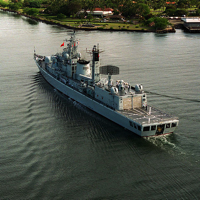
Great powers are sometimes molded by events as much as, if not more than, by grand strategy. In 1898, the United States — at the time an isolationist and anti-colonial power — entered onto the world stage after Spain allegedly sank the USS Maine in Havana Harbor. The commercial adventures of the East India Company compelled the British state to intervene in China, sparking the Opium Wars, while in 1850, the British foreign secretary, Lord Palmerston, ordered the British navy into the Aegean in order to protect a British subject, Don Pacifico, and reclaim his lost property. All were defining […]

Historians will eventually gain a fuller understanding of the forces that propelled the 2011 Arab Rebellion and of the changes that made decades of pent-up anti-government rage explode at precisely this moment. But just two months into the still-spreading uprising, we already know some of the important factors motivating protesters. We have also seen the range of responses the protests have elicited from the various Middle Eastern governments facing mass calls for the end of their entrenched regimes. What we have learned so far suggests that the revolution, like a wildfire on wind-whipped dry brush, will continue to spread. And […]
Russia, Iran and Azerbaijan recently signed a series of railway agreements aimed at implementing the North-South Transport Corridor, including constructing rail links to connect the Iranian cities of Qazvin, Rasht and Astara. In an e-mail interview, Taleh Ziyadov, a doctoral fellow at Cambridge University, and Regine A. Spector, a visiting research fellow at the Woodrow Wilson Center’s Kennan Institute, discussed transport cooperation among Russia, Iran and Azerbaijan. WPR: How extensive are the existing transportation links among the three countries? Taleh Ziyadov and Regine A. Spector: Azerbaijan and Russia are connected by railroad and by a recently constructed modern highway linking […]
In Islamabad gunmen have shot dead Pakistan’s Minister for Minorities. Shabaz Bhatti, the only Christian in the government cabinet, was murdered on Wednesday in the gun attack on his car. The Pakistani Taliban have claimed responsibility for the killing, calling Bhatti a blasphemer. He had been calling for changes to the country’s blasphemy law under which anyone who speaks ill of Islam can face the death penalty.
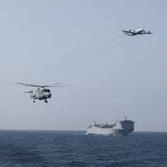
While the full story of the Arab uprisings — and in particular the Libya chapter — has yet to be written, sea power has thus far seemed curiously absent from the events of the Arab Spring. Although one Libyan warship apparently bombarded rebel positions in Tripoli and another may have defected, maritime power has not been central to the course of that country’s revolution. Similarly, the Egyptian navy played no meaningful role in overthrowing Hosni Mubarak, and now remains at dock for lack of funding. And what of NATO? In theory, the effort to relieve Libya and manage the chaos […]

It has become conventional wisdom among U.S. and European policymakers that the Muslim Brotherhood, with its superior organizational structure, will dominate any quickly held election in a post-Mubarak Egypt. Invariably, observations to this effect are followed by warnings about the movement’s beliefs and its questionable commitment to democracy. Those warnings took on ominous overtones when the Brotherhood announced Feb. 21 that it will establish the Freedom and Justice Party to participate in future elections. Many of the Muslim Brotherhood’s policy positions are indeed odious to Western sensibilities. In a democratic Egypt, however, the Brotherhood’s ideas may garner popular appeal. The […]
There’s so much to love about Charlie Sheen’s diatribes that about the only improvement I can think of would be to have Jean-Claude Van Damme be the one interviewing him. Obscured by the spectacle of Sheen’s crash-and-burn party are some very serious critiques of the consensus drug treatment paradigm in the U.S. But there are also some very important insights into U.S. foreign policy and national security. In particular, Sheen’s remarks, which I’m tempted to refer to as the Sheen Doctrine, illustrate one tendency prevalent on the left and another prevalent on the right, while succinctly articulating a major tenet […]
Fighter jets, aircraft carriers in the Mediterranean, a no-fly zone over Libya and arming the rebels are all options being weighed up by the United States and its allies in the European Union, as a defiant Libyan leader Muammar Gaddafi is continuing to cling onto power and is ordering airstrikes on towns and arms depots.
